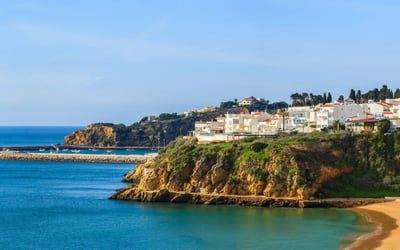Portugal’s low tax scheme for residents – the non-habitual residents scheme – has proven extremely popular with internatonal home buyers there. The tax experts at Chase Buchanan explain how small changes to the scheme could have a big impact on people considering a move or who are currently living in Portugal.
The Non-Habitual Residence regime, available to anyone who has not been resident in Portugal in any of the past five years, operates to effectively exempt most foreign income from tax in Portugal, provided that the taxing rights on that income in any relevant double tax treaty lies with the source country, in whole or part. This applies for 10 years. This means, that, for example, UK dividends may effectively be tax-free in both countries to individuals resident in Portugal under the NHR regime, because of the interaction of each country’s domestic tax law and the double tax treaty. Some gains can also attract this treatment.
Whilst originally pension income also fell into this category, due to domestic Portuguese changes in March 2020, pension income will now be taxable at a flat rate of 10% in Portugal for those applying for NHR from 1 April 2020. The position for those already within the NHR and those who applied before the deadline is that their pension income will not be taxed in Portugal. If an individual was already resident in Portugal on 31 March 2020 and applied for NHR prior to 31 March 2021, their pension income will also enjoy the exemption for the duration of the NHR.
One point to note is that, strictly, the income is not exempted from tax in Portugal under NHR. It is added to any Portuguese income to calculate the effective rate of tax on any Portuguese income. So, if an individual has no Portuguese income, there is no impact; however, if they do, for example, interest, this will be taxed at higher rates as a result of having the foreign income, but that foreign income will not be directly taxed in Portugal.
The changes from 2023
The 2023 charges that affect NHR (and other people) is to do with short-term capital gains (assets held for less than 365 days) where income exceeds €75,009 (the highest tax band). Gains and losses falling into this category will be amalgamated and taxed at the scale rates of tax. It will also apply to gains and losses subject to the aggravated 35% tax rate (where held in a more favourable tax regime),
This is likely aimed at the people arriving in Portugal who believe that their gains on crypto are not taxable…it certainly does not affect offshore bonds.
The other stories are very much still rumours at present – we will find out more of what the government has in mind in October, when the draft Budget is issued. Apparently the government, although Socialist, does see the value of the NHR.
It is probably likely that the offshore life bond will protect against this sort of thing as well, so more reason to have them!
For your free consultation with Chase Buchanan, just click the link and fill out the form.



